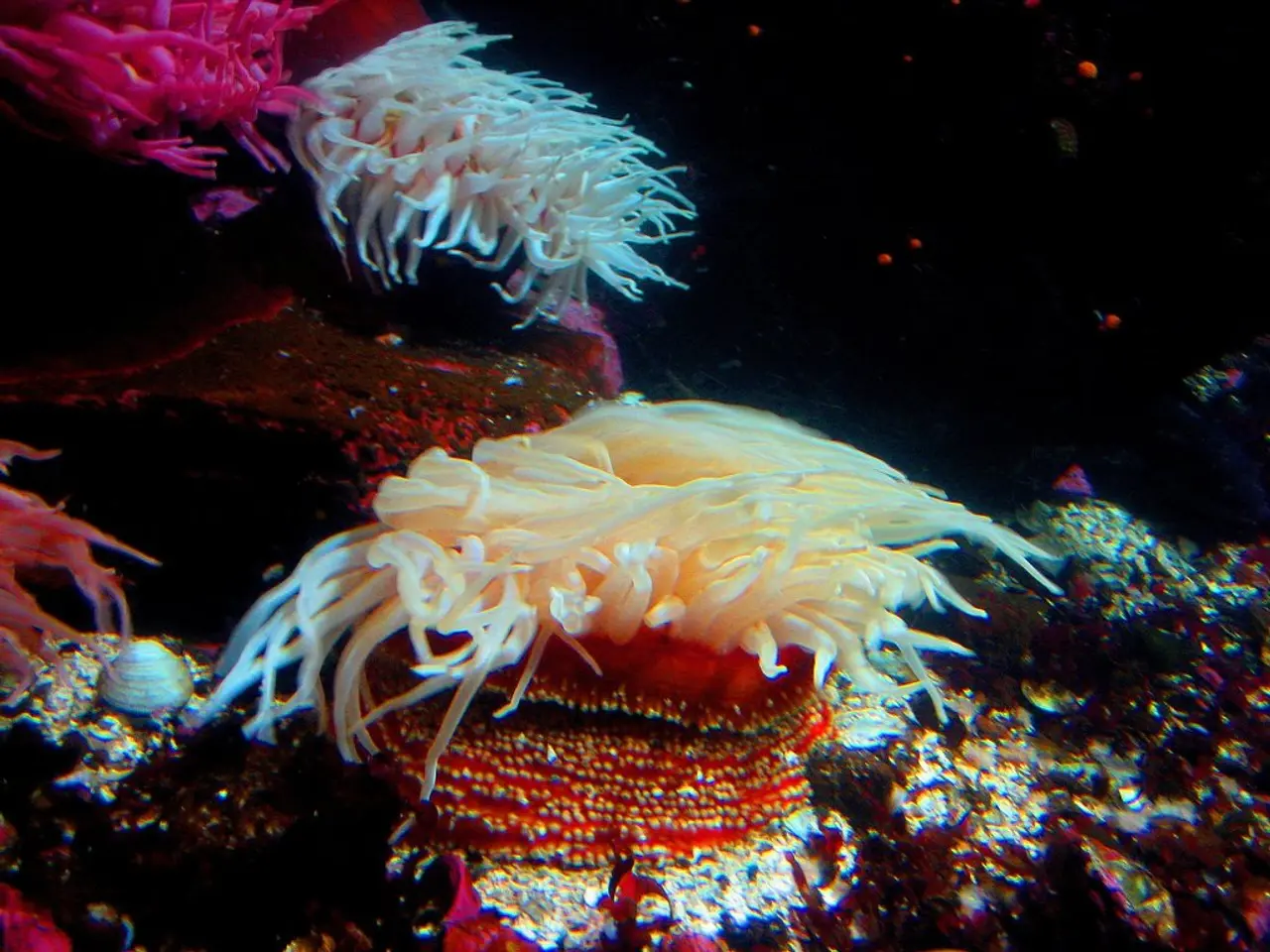Massive Coral Decimation on Australia's Great Barrier Reef Following Worst-Ever Mass Bleaching Event
Great Barrier Reef Faces Uncertain Future Amidst Record Coral Decline
The Great Barrier Reef, one of the world's natural wonders, is facing a significant decline in its coral cover and health. Over the past five years, the reef has been hit by five catastrophic coral bleaching outbreaks, with the most extensive occurring in 2024.
Climate change-induced bleaching events are becoming more frequent than the reef can recover from. Rising sea temperatures, caused by marine heatwaves, disrupt the symbiosis between corals and algae, leading to bleaching and, in many cases, mortality.
The northern region of the Great Barrier Reef has suffered the largest annual drop in coral cover since monitoring began in the mid-1980s. In contrast, the southern region has recorded the worst year-on-year decline in its 39-year monitoring history. The central region has seen a decline that is less severe but still close to the long-term average.
The degradation of the Great Barrier Reef could have a wide-ranging impact on nearby populations and the ecosystem worldwide. The reef's economic significance is also at stake, with thousands of jobs and billions of dollars in tourism revenue at risk.
The UN has suggested that the Great Barrier Reef be included on UNESCO's list of endangered world heritage monuments. However, Australia has actively lobbied to prevent this classification due to concerns about the potential impact on tourism and the economy.
The search for solutions to save the Great Barrier Reef is a pressing concern for environmental activists like Sarah Tancredi. Tancredi, an experienced journalist and news reporter specializing in environmental and climate crisis issues, is passionate about raising awareness about pressing environmental challenges and promoting sustainable solutions. She strives to inspire individuals, communities, and policymakers to take action to safeguard the planet for future generations.
Recent studies highlight that the reef’s physical structure influences its ability to buffer impacts such as waves and temperature changes, which varies locally. This means that the reef's geomorphology and bathymetry affect the severity of the impact, with some areas more vulnerable than others.
Other local stressors, such as water quality deterioration from agricultural runoff, coastal development, and pollution, exacerbate coral vulnerability. Climate change, as a principal driver, is intensifying coral stress by increasing the frequency of extreme weather events, including cyclones and heatwaves.
The deteriorating state of the Great Barrier Reef underscores the urgent need for global action to combat climate change and save the environment. As Tancredi puts it, "We must act now to ensure the Great Barrier Reef, and our planet, are preserved for future generations."
- Continuous reporting on the Great Barrier Reef's declining health emphasizes the need for courses and workshops on environmental science to educate people about the impacts of climate change.
- In light of the record coral decline, research on alternative job opportunities in health-and-wellness and medical-conditions industries could be a viable solution for those employed in the Great Barrier Reef's tourism sector.
- The UNESCO's inclusion of the Great Barrier Reef on the list of endangered world heritage monuments could serve as a catalyst for increased commitment toward sustainability and ESG (Environmental, Social, and Governance) practices in various courses, jobs, and businesses.
- To mitigate the effects of climate change, research on new technologies and methodologies to promote environmental sustainability must be prioritized across all academic and professional fields, including science and engineering courses.
- As the Great Barrier Reef faces an uncertain future, researchers in environmental science should intensify their efforts to understand and predict the impact of climate change on other delicate ecosystems worldwide.
- Sarah Tancredi's work in reporting on environmental challenges and promoting sustainable solutions underscores the significance of integrating health-and-wellness, climate-change, and sustainability courses and practices into broader scientific and professional fields.




